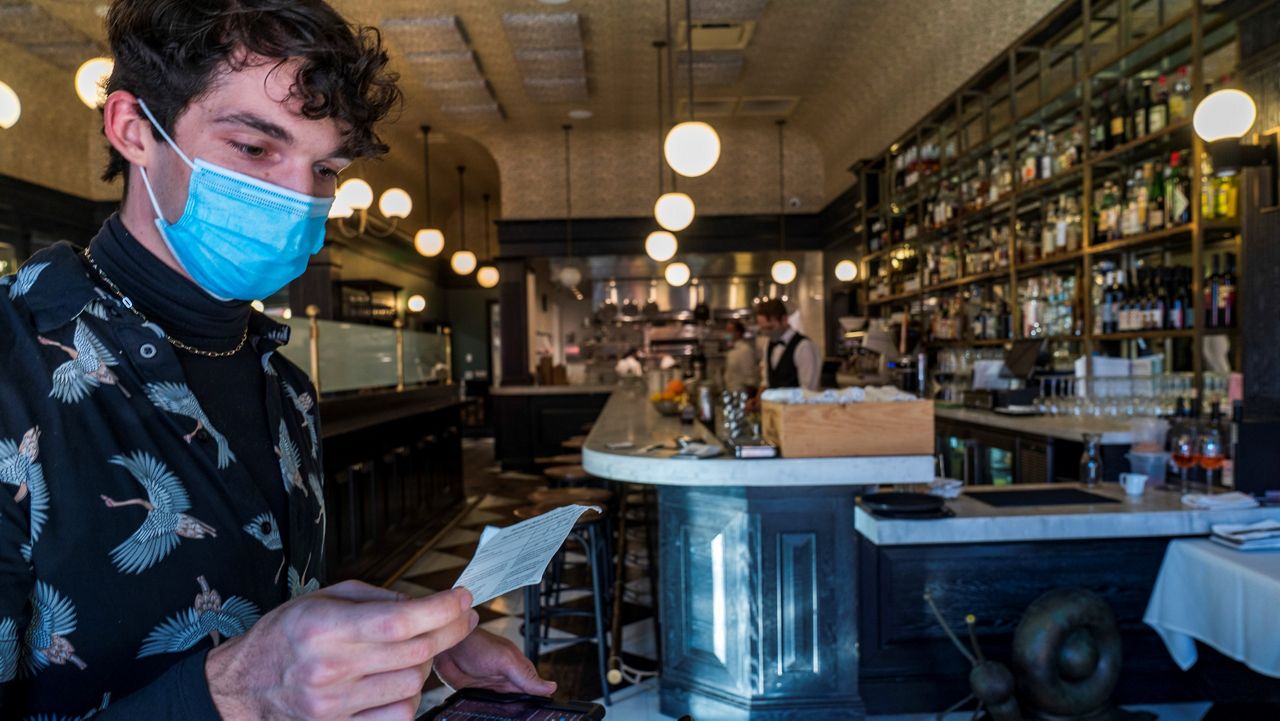LOS ANGELES (CNS) — The Los Angeles City Council unanimously passed an ordinance Wednesday to streamline the process for some restaurants to be permitted to serve alcohol — reducing the process from months to just weeks, and by thousands of dollars.
The ordinance, which creates the Restaurant Beverage Program, will next need to be approved by Mayor Eric Garcetti.
The program, which has been developed over the last four years, will allow eligible sit-down restaurants to serve alcohol through an administrative clearance process that would cost about $4,000 instead of $13,000 through the Conditional Use Permit process, according to the Department of City Planning.
Councilman Paul Krekorian, who introduced a motion in August 2017 that began the process for the ordinance, said before the vote Wednesday that restaurants can go through the expedited process if they agree to conditions that are stricter than the current permitting process through the Conditional Use Permit.
"We all know that the restaurant industry has hit on very hard times, particularly post-pandemic. So we've been working on a way to try to shorten the time that restaurants need to get open and to get open and provide a full range of services to their customers, while still protecting the surrounding neighborhood," Krekorian said.
Night clubs, bars and liquor stores are not eligible for the program, and restaurants in approved locations have to meet a specific eligibility criteria before qualifying. Key eligibility requirements include:
- the restaurant must have an operational kitchen, full menu and food served during all operating hours;
- the restaurant's hours must be limited to 7 a.m. to 11 p.m., and it must have a minimum of 10 patron seats and a maximum of 150 patron seats;
- the restaurant must not have live music, dancing, karaoke, DJs, pool tables or outdoor TV monitors or outdoor music;
- the restaurant must have a minimum amount of lighting;
- the restaurant's owners and staff must have alcohol service training;
- restaurants must have a camera surveillance system and complaint log;
- and any graffiti and litter at the restaurant must be removed.
Some of the provisions, including prohibiting live entertainment and outdoor music, are aimed at ensuring the restaurants are respectful of surrounding neighborhoods. Neighbors can report violations of the rules to the Los Angeles Department of Building and Safety.
Several council members spoke in support of the ordinance. Councilwoman Nithya Raman noted that it will offer an alternative path to small restaurants that don't have the resources to go through the Conditional Use Permit process.
"Los Angeles, a city renowned for its food culture, is also one the most difficult cities in the country to open a restaurant. I just wanted to say one thing about our current process permitting the sale of alcohol at restaurants, it actually stacks the deck against small independent restaurants, because you have to have so much capital, and so many connections, to go through the incredibly expensive process and a process which demands a huge amount of political wrangling to get a Conditional Use Permit," she said.
Several people with the Los Angeles Drug and Alcohol Policy Alliance called in to the City Council meeting to oppose the ordinance and ask for amendments, including additional restrictions on happy hours, minimum drink requirements and drink specials.
One member of the alliance said "we are worried young people will be dangerously colliding with the sharp rise of pandemic-fueled excessive binge drinking."
Another alliance member, Brenda Villanueva, said in written public comment that the alliance is concerned that without community input through the Conditional Use Permit process, neighborhoods will be "overrun with alcohol licenses."
The ordinance was supported by the Independent Hospitality Coalition, which represents more than 1,200 food service business operators and employees in the Los Angeles area.
"The creation of RBP would help businesses who need it most — the small restaurant businesses that cannot afford a Conditional Use Permit — both the extreme financial burden and lengthy time historically associated with the CUP process, typically requiring the hiring of an expeditor to navigate the cumbersome process," the coalition said in a January letter to the Planning and Land Use Management Committee.



